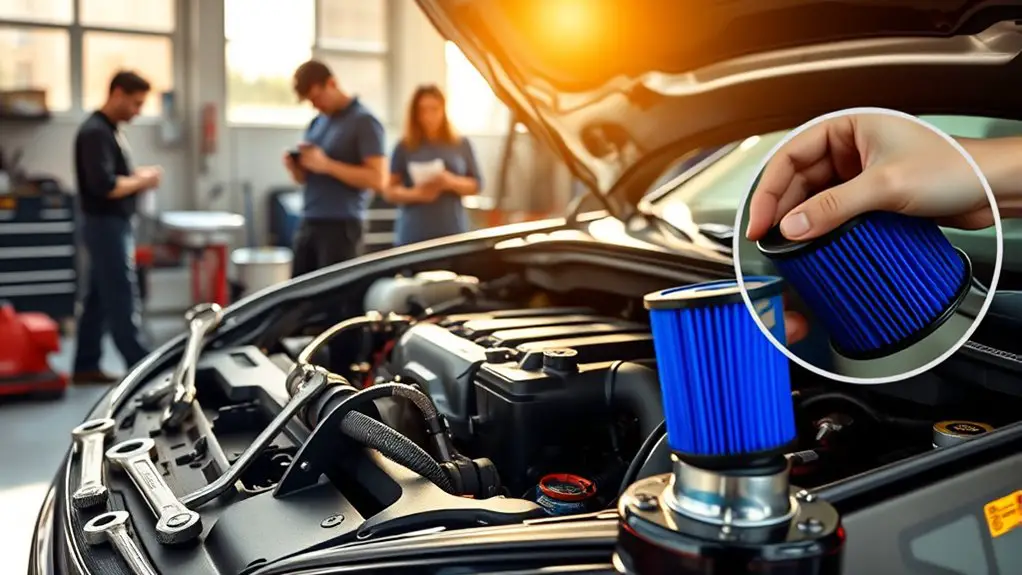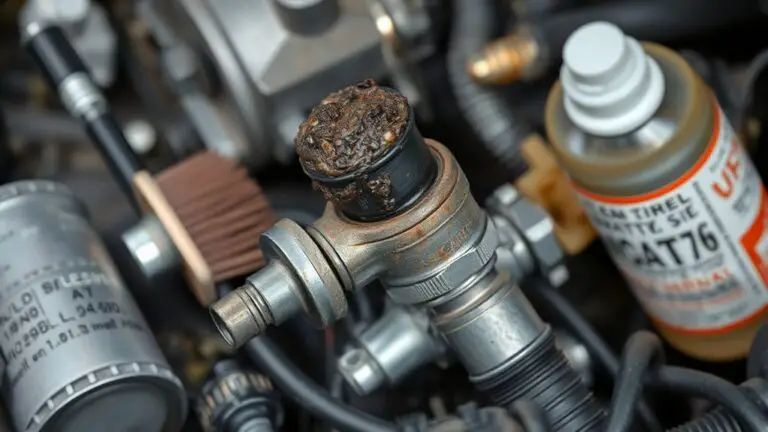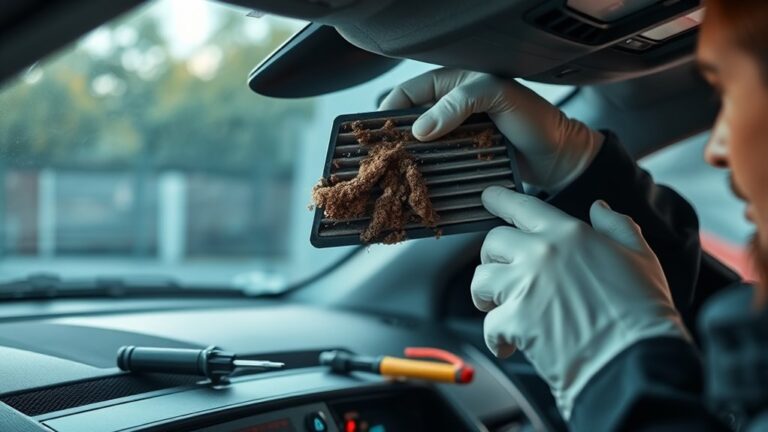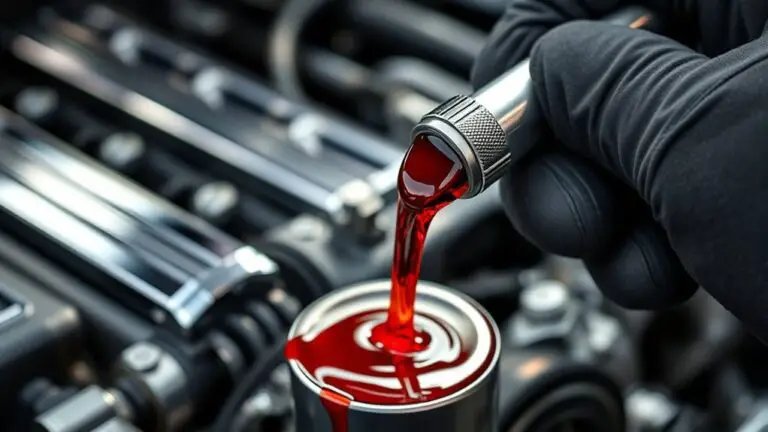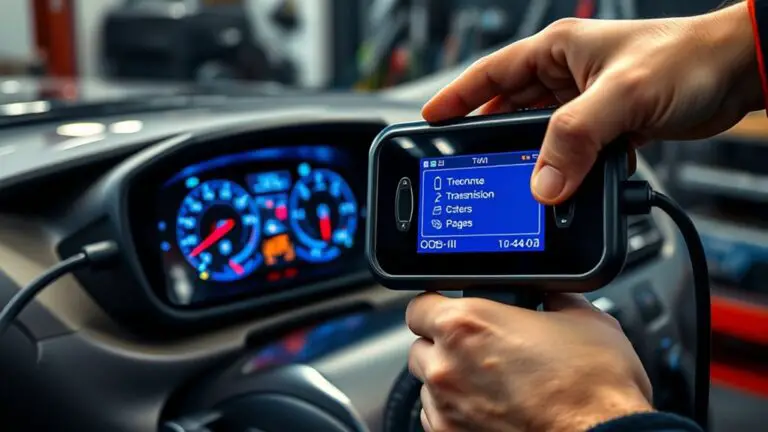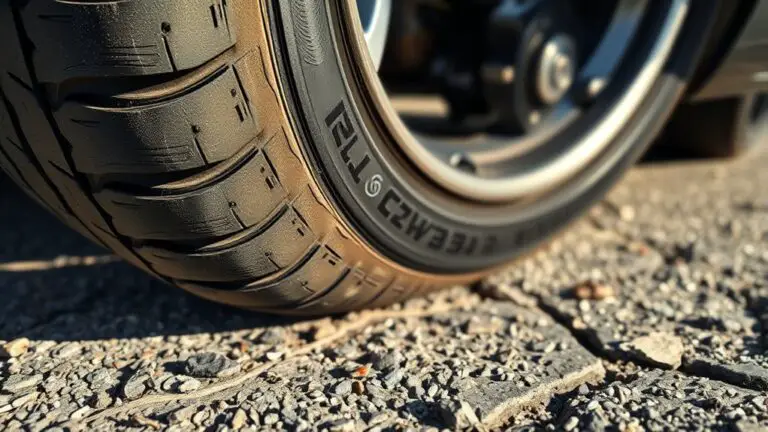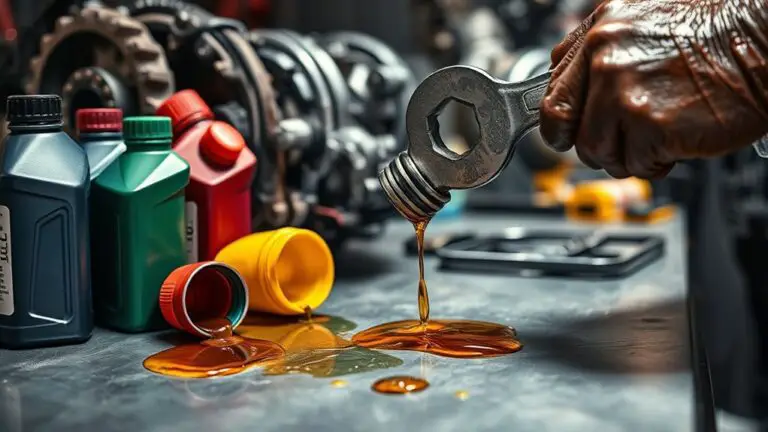Preventive Maintenance to Avoid Hard Starting in High-Mileage Car
To prevent hard starting in your high-mileage car, you need to prioritize maintenance. Regularly inspect and replace the battery, ensuring terminals are clean and connections are tight. Keep your fuel system efficient by using quality fuel and replacing clogged fuel filters. Don’t overlook the ignition system; check spark plugs and ignition coils for wear. Finally, schedule routine engine maintenance, including oil changes and air filter replacements, to keep your vehicle running smoothly. Learn more about each step for peak performance.
Understanding the Causes of Hard Starting in High-Mileage Cars
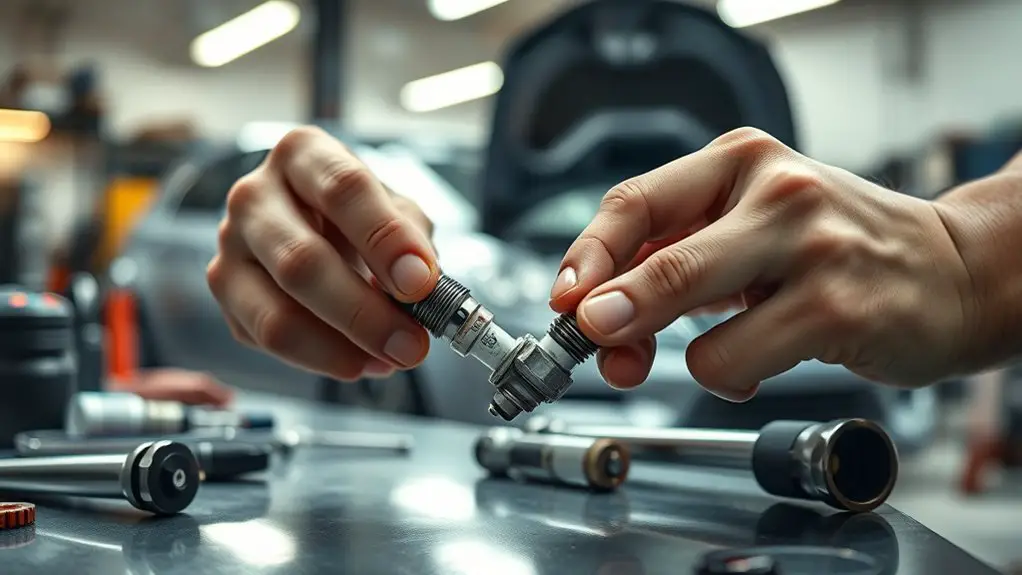
When you drive a high-mileage car, you might notice that starting issues become more frequent, often stemming from several underlying factors. One major culprit is fuel quality. Poor-quality fuel can lead to clogged fuel injectors and ineffective combustion, making it harder for your engine to start. Additionally, using fuel with insufficient octane ratings can exacerbate these problems.
Starter issues also play a significant role in hard starting. Over time, wear and tear on the starter motor can lead to inconsistent performance, causing the engine to struggle when turning over. Corroded connections and worn-out components may further hinder the starter’s efficiency.
To maintain your vehicle’s reliability, it is crucial to address these factors proactively. Regularly using high-quality fuel and keeping an eye on your starter system will help guarantee that your high-mileage car starts smoothly, allowing you the freedom to drive without unnecessary delays.
Regularly Inspect and Replace the Battery
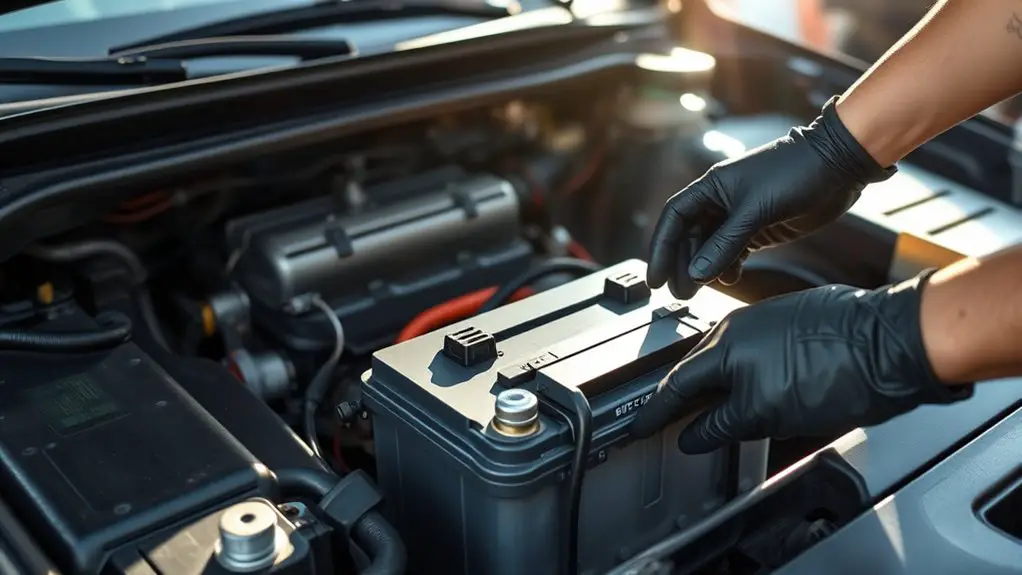
Starting issues in high-mileage cars can also be linked to battery performance. Over time, a battery’s lifespan diminishes, which can lead to unreliable starts. It’s essential to regularly inspect your battery to guarantee its peak function. Check the battery terminals for corrosion or loose connections. Corroded terminals can impede electrical flow, resulting in hard starting.
If your battery is over three to five years old, consider replacing it, even if it seems to be functioning. Old batteries often fail without warning, especially in colder conditions. Additionally, keep an eye on the overall condition of the battery casing; any bulging or leakage indicates it’s time for a replacement. By maintaining your battery, you not only enhance your car’s reliability but also enjoy the freedom of uninterrupted journeys, knowing you’ve taken proactive steps to avoid potential hassle on the road.
Keep the Fuel System Clean and Efficient
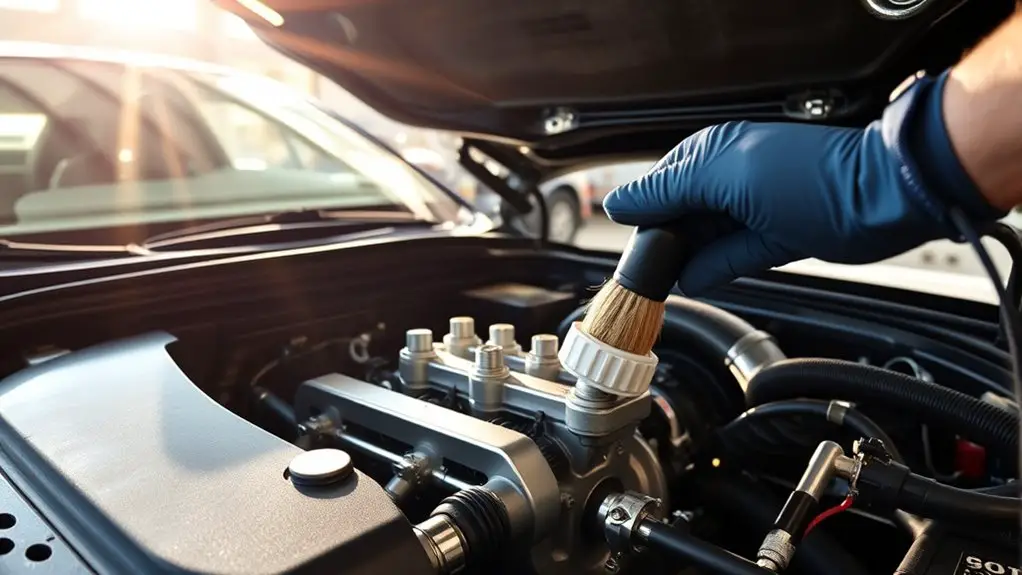
Maintaining a clean and efficient fuel system is essential for high-mileage cars, as it directly impacts engine performance and fuel economy. Over time, fuel injectors and lines can accumulate deposits, leading to reduced efficiency and hard starting. To combat this, consider using quality fuel additives regularly. These additives can help dissolve carbon buildup and keep injectors functioning at their best.
Additionally, don’t underestimate the importance of fuel filters. A clogged fuel filter restricts fuel flow, causing your engine to work harder, which can result in poor performance. Make it a habit to check and replace fuel filters according to your vehicle’s maintenance schedule.
Check and Maintain the Ignition System
Since a well-functioning ignition system is essential for ideal engine performance, it’s important to regularly check and maintain its components. Start by inspecting the spark plugs, as worn or fouled plugs can lead to hard starting and poor fuel efficiency. Replace them according to your vehicle’s specifications, typically every 30,000 miles, or sooner if you notice signs of wear.
Next, check the ignition timing. Incorrect timing can cause misfires and increase fuel consumption. You can use a timing light to verify it’s within the manufacturer’s recommended settings. If adjustments are needed, consult a professional or refer to your service manual.
Lastly, examine the ignition coils and wires for any signs of damage or corrosion. Faulty components can disrupt the spark delivery, leading to engine performance issues. By staying on top of these maintenance tasks, you’ll enhance your car’s reliability and overall longevity.
Schedule Routine Engine Maintenance and Tune-Ups
To keep your high-mileage car running smoothly, scheduling routine engine maintenance and tune-ups is vital. Regular upkeep not only enhances performance but also prolongs your vehicle’s life. Here’s what you should focus on:
- Oil Changes: Changing the oil regularly guarantees proper lubrication and reduces wear on engine components.
- Air Filters: Replacing dirty air filters improves airflow to the engine, boosting efficiency and performance.
- Spark Plugs: Regularly inspecting and replacing spark plugs can prevent hard starting issues and improve fuel combustion.
Frequently Asked Questions
How Can I Tell if My Battery Is Failing?
You can tell if your battery’s failing by observing battery indicators like dimming headlights or slow engine cranking. Testing methods such as a multimeter can reveal voltage levels; a reading below 12.4 volts often signifies a weak battery. If your vehicle struggles to start or shows warning lights, it might be time for a replacement. Regular checks can guarantee you’re not left stranded and maintain your freedom on the road.
What Are Signs of a Clogged Fuel Filter?
If you’re noticing fuel filter symptoms, like engine sputtering, difficulty starting, or reduced acceleration, it’s time to pay attention. A clogged fuel filter can restrict fuel flow, leading to poor performance. You might also experience stalling or a drop in fuel efficiency. To avoid these issues, follow maintenance tips such as regularly replacing the fuel filter according to your vehicle’s schedule and using high-quality fuel to keep your system clean.
How Often Should I Replace Spark Plugs?
You should replace spark plugs every 30,000 to 100,000 miles, depending on your vehicle and spark plug type. Regularly checking your maintenance schedule is essential for peak performance. A worn spark plug can lead to misfires and reduced efficiency, impacting your ride’s freedom on the road. Remember, the lifespan of spark plugs is influenced by driving conditions and habits, so keep an eye on their condition to guarantee a smooth journey.
Can Weather Affect Hard Starting Issues?
Yes, weather can greatly impact hard starting issues. Seasonal changes, like dropping temperatures or high humidity, affect your car’s battery efficiency and fuel mixture. Cold weather can thicken oil, making it harder for the engine to turn over. Additionally, moisture can cause electrical components to malfunction. To minimize these effects, make sure your battery’s in good shape and consider using oil suited for extreme conditions. Regular checks can help keep you on the road.
Is It Worth Upgrading to a High-Performance Battery?
Upgrading to a high-performance battery is worth it if you value both performance benefits and battery longevity. These batteries often provide faster cranking power and improved reliability, especially in extreme conditions. You’ll notice a more responsive start, which can enhance overall driving enjoyment. Plus, their longer lifespan means you won’t have to replace them as often, ultimately saving you money in the long run. Embrace the freedom of hassle-free starts!

